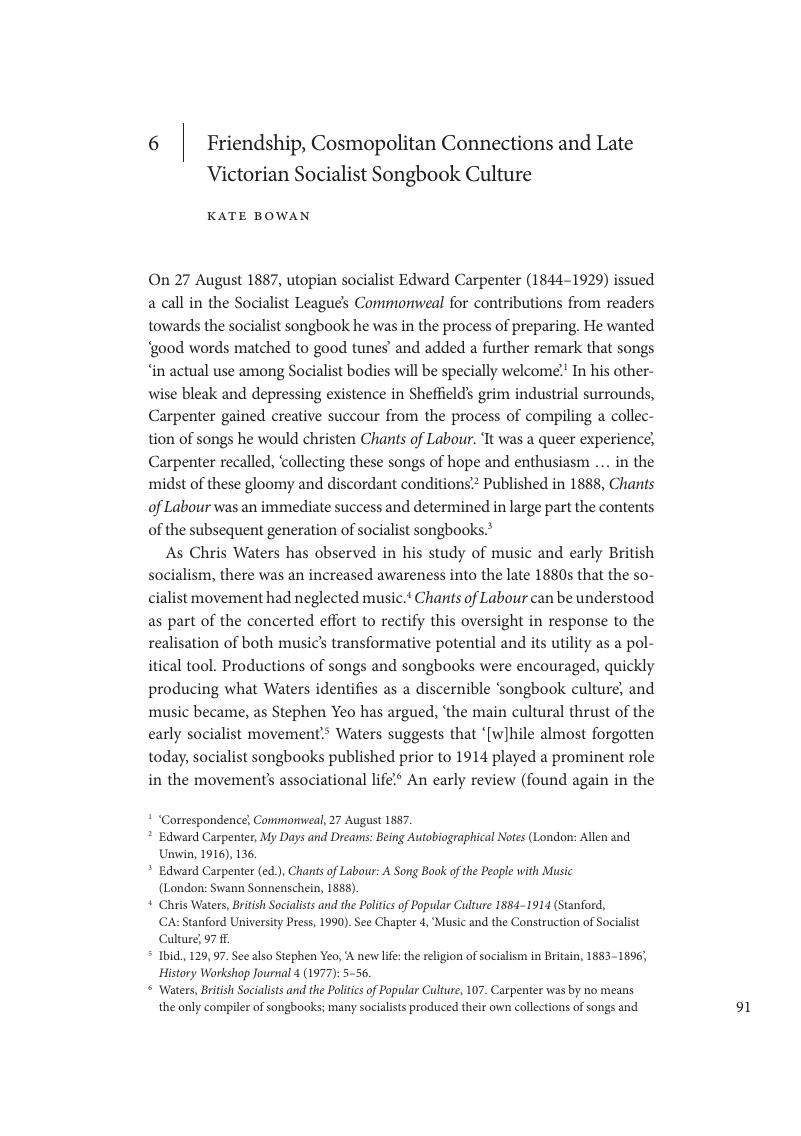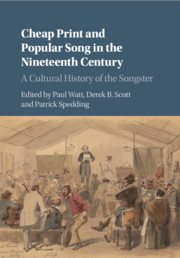Book contents
- Cheap Print and Popular Song in the Nineteenth Century
- Cheap Print and Popular Song in the Nineteenth Century
- Copyright page
- Contents
- Figures
- Tables
- Contributors
- Acknowledgements
- 1 The Nineteenth-Century Songster: Recovering a Lost Musical Artefact
- Part 1 Production, Function and Commerce
- Part 2 Politics
- 5 The US Presidential Campaign Songster, 1840–1900
- 6 Friendship, Cosmopolitan Connections and Late Victorian Socialist Songbook Culture
- 7 ‘Confound Their Politics’: The Political Uses of ‘God Save the King-Queen’
- 8 Charles Robert Thatcher’s Songsters: Politics on the Goldfields of Victoria, Australia
- Part 3 Nation, Place and Purpose
- Index
- References
6 - Friendship, Cosmopolitan Connections and Late Victorian Socialist Songbook Culture
from Part 2 - Politics
Published online by Cambridge University Press: 07 April 2017
- Cheap Print and Popular Song in the Nineteenth Century
- Cheap Print and Popular Song in the Nineteenth Century
- Copyright page
- Contents
- Figures
- Tables
- Contributors
- Acknowledgements
- 1 The Nineteenth-Century Songster: Recovering a Lost Musical Artefact
- Part 1 Production, Function and Commerce
- Part 2 Politics
- 5 The US Presidential Campaign Songster, 1840–1900
- 6 Friendship, Cosmopolitan Connections and Late Victorian Socialist Songbook Culture
- 7 ‘Confound Their Politics’: The Political Uses of ‘God Save the King-Queen’
- 8 Charles Robert Thatcher’s Songsters: Politics on the Goldfields of Victoria, Australia
- Part 3 Nation, Place and Purpose
- Index
- References
Summary

- Type
- Chapter
- Information
- Cheap Print and Popular Song in the Nineteenth CenturyA Cultural History of the Songster, pp. 91 - 111Publisher: Cambridge University PressPrint publication year: 2017
References
Songsters Referred To in the Text
References
- 1
- Cited by



